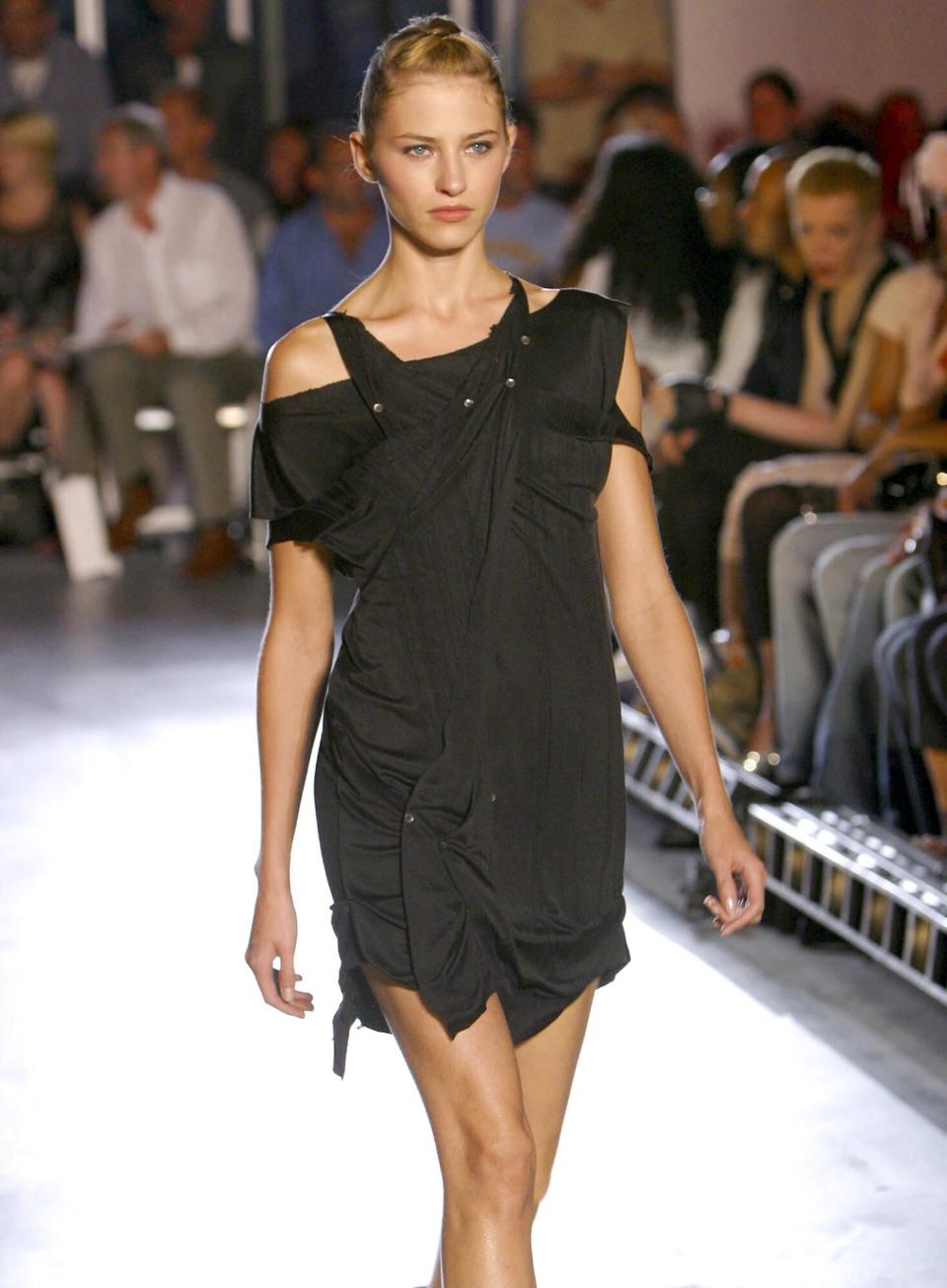Model Sara Ziff Introduces Bill to Fight Exploitation in the Fashion Industry

Reed Young Sara Ziff on May 1
The buzz around New York Fashion Week fills our social media feeds with A-list front row sightings, stylish supermodel runway moments and lots of behind-the-scenes glamour. Working in the industry sounds like a dream for many — from aspiring models, makeup artists, hair stylists and influencers. But despite the excitement that comes with a career in fashion, many workers aren’t afforded basic labor protections, and a new bill is looking to change that.
Called “The Fashion Workers Act,” the pro-labor legislation aims to protect New York models and other fashion creatives from predatory management agencies that are currently able to operate without regulations.
The bill was announced in March by model Sara Ziff, founder and executive director of the labor-advocacy group the Model Alliance, which has been working for the past 10 years to create labor rights for models and creatives in the state of New York. The bill is also co-sponsored by New York State Senator Brad Hoylman and Assemblymember Karines Reyes.
“I entered the business at 14, which is very young,” Ziff, who has worked as a face of big brands like Tommy Hilfiger, Calvin Klein and Stella McCartney, tells PEOPLE. “I quickly realized that there was an asymmetry of power. That includes difficulty in getting paid the money I was owed, waiting months, even years simply to get paid for a job. I think the longest I waited was 11 years.”

J. Countess/WireImage Sara Ziff at Fashion Week Spring 2004 in N.Y.C.
If passed, The Fashion Workers Act would require management companies to pay models and creatives within 45 days of completing a job, provide models and creatives with copies of contracts and agreements and conduct reasonable inquiry into health and safety on set.
“Many of these girls — because we’re talking about a largely young female workforce in the modeling industry — many of them are extremely vulnerable to abuse,” Ziff says. “These agencies are completely unregulated and therefore the people who work for them, models and creatives, really have been uniquely cut out of labor law.”
The Model Alliance also runs a support line, and Ziff says the number one complaint they hear is around modeling scams, where scammers will pose as modeling agents and prey on the aspirations of girls who want to work in the industry.
“They’ll solicit payments or nude photos, or sometimes it rises to the level of trafficking schemes,” Ziff says. “I think this happens because currently there are no standards for modeling and creative management companies, so it’s nearly impossible to discern whether a job opportunity is legitimate or not.”

Dimitrios Kambouris/Getty
Renowned makeup artist Daniel Martin, who is behind some of the world’s most famous faces, including Meghan Markle, Jessica Biel and Gemma Chan, has also lent his support to the Fashion Workers Act.
RELATED: Makeup Artist Daniel Martin Wants to See More Asian Representation in the Beauty Industry
“This bill will create transparency and protection rights due to the multi-level labor hiring of certain creatives in the fashion industry,” Martin, the Global Director of Artistry and Education at Tatcha, tells PEOPLE.
Since she began advocating on behalf of fashion workers in New York, Ziff says she has found it difficult to challenge the perception of the industry as a whole.
“One thing that I have struggled with in my advocacy is this perception that the industry is glamorous. And the reality is, for the vast majority of people, it is so different. It’s sort of camouflaged by this facade of glamour and it makes it hard for people to understand that we are doing a job and deserve to be treated fairly — just like anyone else who works for a living.”
The bill comes amid a labor revolution in the U.S., where workers across several industries and major companies are organizing — from Amazon to Starbucks.

Reed Young Sara Ziff
The Model Alliance has been working hard to ensure the Fashion Workers Act will be passed before the New York State Legislature session ends on June 2. On May 1, Ziff spoke at a press conference on the steps of the Metropolitan Museum of Art ahead of Monday’s Met Gala.
“I went into it quite naively, just assuming that we could make the industry better,” Ziff says. “And I came to realize that there was a lot of pushback from various players in the industry. It’s been an uphill battle and I feel like this legislation is the culmination of all of our work. It’s taken a decade to get here.”
